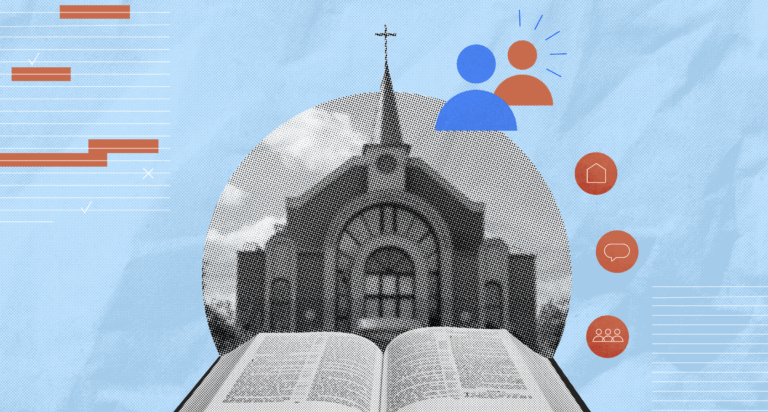To the memory of Charlie Kirk
How do we sort ourselves out, wanting free speech while concerned about certain kinds of speech? Is all speech of equal worth? What speech is worthy of concern? Who gets to regulate such things? What do we say about speech in the public square, and what do we say about it as Christians in our own community?
Let’s begin by defending free speech. Without it, societies turn into tyrannical and oppressive institutions. The great divide between the USA and Great Britain or Europe is that the former defends free speech while the latter oppose hate speech. The problem for the USA is that free speech offers very little regulation for some really nasty people. The problem on the other side is that someone or some group gets to decide what ‘hateful’ means, and we have enough evidence in the past few years that Christians are being targeted for their age-old beliefs under the laws of hate speech. Face it: laws defining ‘hate speech’ have become hateful themselves.
So, what do we do? A few starters. The main concerns for ‘free speech’ are religious and political. If one wants freedom of religion, one needs freedom of speech. If one wants a political society that entertains different ideas, one needs free speech. When a government decides that some religious or political ideas are wrong or hateful, it becomes the arbiter of religion or politics—it becomes fundamentalist or tyrannical. This is not theoretical; it is the case in the UK right now. The only question is how oppressive the government intends to become, not whether it is oppressive in regulating religion and politics.
Other societies have dealt with this dilemma over the centuries. The book of Daniel includes the story of Persia exploring the control of religious speech, prayer. Daniel ended up being thrown to the lions for praying to God because it was against the law. When Jewish authorities tried to shut down early Christian preaching in Jerusalem, Peter famously responded, ‘We must obey God rather than men’ (Acts 5.29). Paul says,
How then will they call on him in whom they have not believed? And how are they to believe in him of whom they have never heard? And how are they to hear without someone preaching? (Romans 10.14).
Free speech is necessary for a religion, Christianity, that believes in salvation through preaching the Gospel and responding in faith: Word and belief. Religions that want to establish themselves not through persuasion but oppression are anti-free speech, like Islam especially. Try street corner preaching in Saudi Arabia. Even ‘Church of England’ England has had cases trying to silence street preachers in recent years.
So, Christians are for free speech for the sake of the Gospel, the proclamation of Good News. They are against oppression that seeks to regulate people’s religion because they believe in the importance of faith. Not all religions are ‘equal’ in this regard—not at all. A discussion of ‘religion’ in a country misses the important distinctions between religions. Christianity defends free speech, Islam attacks it. Christians suffer abuse for the sake of free speech, but Muslims will kill you for an unpleasant cartoon of Mohammed.
Yet, while Christians are for free speech, they also have other views on speech that offer a wider context for the discussion of speech. One of the problems we have in ethical discussions in the West is that ethics has been so narrowed during the Enlightenment to universal principles that it is cumbersome and inefficient for civil society. We need more than ‘free speech’. Freedom is a value, but it is not the only value.
For example, the Ninth Commandment regulates speech: ‘Thou shalt not bear false witness.’ Without such a regulation, great damage can be and is often done. Individuals slander others, and we have laws in our ‘free speech society’ that produce penalties for slander. A woman divorcing her husband may have anger that leads her to lie about him, trying to make her case stronger by accusing him of things he never did. A group may slander another group, twisting what they believe or say in order to destroy them. This, of course, was a regular occurrence for Christians in the first three centuries of the Church, and many paid with their lives as a result of the persecution. Yet one of the worst groups breaking the Ninth Commandment are the very people who should defend free speech: journalists. Their partisan reporting every day is an attempt to slander one group and promote another.
Notice that the Ninth Commandment opposes ‘false witness’. This may be motivated by hate, but it is not a commandment against hate speech. One cannot regulate hate speech properly, as I have said, but one can regulate false witness. If I say that turning to Jesus and receiving the Holy Spirit brings transformation in your life, I am witnessing to the truths of Christian religion. This belief in transformation applies to besetting sins, such as gender and sexual deviances from Biblical teaching. Those thinking from the principle of ‘hate speech’ will turn the good news of God’s work in people’s lives into hate speech against the sinner—and they have. My Christian speech is about a loving message, not hate speech. Those opposing it hate my religion and are caught in their own web.
The solution to unwieldy ‘free speech’ in society is not to introduce laws against ‘hate speech’ but to be more active in prosecuting ‘false witness’. Christians will, like Paul in Jerusalem, have public disputations as they try to persuade others of the truth of the Gospel. That is only to be expected. Sadly, the response to Paul’s witness to the Gospel of Jesus Christ was the Pharisees plotted to kill him (Acts 10.29). Christians had to remove Paul far away to his home city because his opponents did not want to defend their views but simply kill him.
Christians do not defend the speech of others as of equal value to their own but defend having the space to dispute and try to persuade others in society. They favour free speech, but their motivation for this is not some liberal idea that all speech, every viewpoint, is to be valued the same. They want space in the public square to proclaim the Good News of Jesus Christ. They want to give a true witness to their faith. Their goal in free speech is to try to persuade, not simply to let everyone say what they want and nothing more.
Christians believe that their free speech is truthful witness and that those opposing them are sometimes promoters of hate in society. Those who act on their hate might become murderers, as we have seen with the murder of Charlie Kirk this past week. Other haters have used their free speech to endorse his murder and vigilantism.
The Sixth Commandment speaks to this: ‘Thou shalt not murder.’ Jesus interpreted it not only as an act but also a disposition—hate—and a matter of speech—hurling insults (Matthew 5.21-23). Yet this interpretation that goes beyond an act and digs down into the heart is not one for the state to regulate but for the Christian living according to God’s commandments in light of God’s judgement of people’s actions and hearts. Thus, as Christians we have higher standards than ‘free speech’, avoiding insults and angry words. Where the state has a role is regulating false witness.
James also addresses speech in several ways in chapter 3. His words are generally applicable, but they were directed to a Christian community. First, not many should become teachers as God will judge them more strictly (3.1). Many such warnings against false teachers are given in the New Testament. If the Church applied this rule today, it would remove many a priest and bishop. We might start a concern about speech by cleaning our own household and holding ourselves to higher standards about who is ordained to ministry of the Word of God.
Second, the perfect man is one who controls his speech, like a bridle on a horse or a rudder on a ship (3.2-5). One does not let the horse go wherever it wishes or a ship float without direction. What is required of Christians is controlled speech. Third, we need to put out effort to tame the tongue, which is compared to a fire that can set a forest alight. It can speak both blessing and cursing, like a spring putting out fresh and salt water or a tree bearing different kinds of fruit (3.6-12). James’s words come as admonition: ‘My brothers, these things ought not to be’ (3.10). they cannot be regulated by government.
In sum, Christians advocate free speech in civil society. They are against hate speech and false speech. However, they do not believe the government should regulate speech according to hate speech laws as this is a tyrannical and oppressive use of government authority. Christians should tame their speech, being wary of who is appointed a teacher in the community, controlling their speech, and taming their tongues to speak only good things. In wider society, where laws apply, the government should regulate false speech, not hate speech.











 English (US) ·
English (US) ·